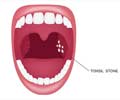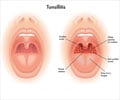New physician anesthesiologist-led protocol for tonsillectomy pain control reduces variability, improves patient care, and plays an important role in pain control.

‘Providing oral rather than IV acetaminophen to children having tonsillectomies improves care and saves costs.’





Tonsillectomy, the removal of the tonsils sometimes along with the adenoids is one of the most common procedures in children, with more than 500,000 performed each year.Children may have tonsillectomies due to recurrent infections of the tonsils or because they are experiencing abnormal breathing patterns while sleeping, which in some cases can be dangerous.
Acetaminophen is the first step in pain management for tonsillectomies with or without adenoidectomy. Some children were given oral acetaminophen before the procedure and others received it via IV during the procedure.
Physician anesthesiologists at Children’s Hospital Colorado employed a multimodal approach to pain management in tonsillectomy meaning they use a variety of medications throughout the process to treat pain in multiple ways, thereby reducing the need for opioids after surgery.
In addition to the acetaminophen before surgery, the multimodal approach includes giving children a high-dose steroid and an opioid medication during surgery.
Advertisement
The researchers also surveyed nurses and another staff before and after the protocol was enacted. Staff reported they were much more satisfied with the new protocol, including the care given to the children and their role in providing it.
Advertisement
Additionally, switching from IV to oral acetaminophen saves more cost. The new process standardizes care, which also can help to reduce medical errors.
Source-Medindia











